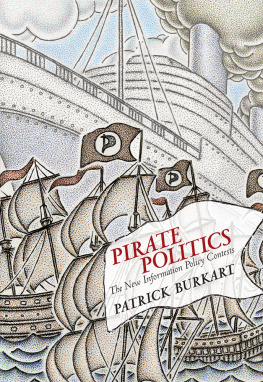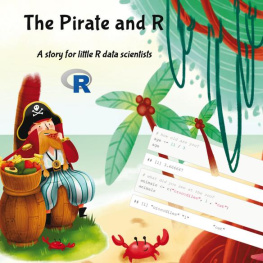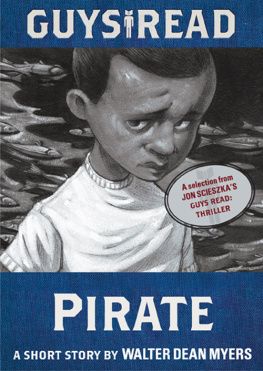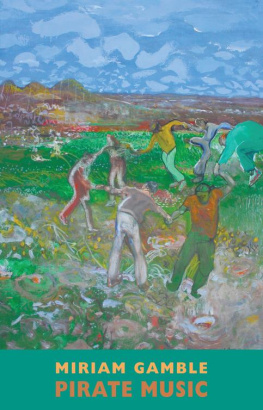Pirate Politics
The Information Society Series
Laura DeNardis and Michael Zimmer, series editors
Interfaces on Trial 2.0, Jonathan Band and Masanobu Katoh
Opening Standards: The Global Politics of Interoperability, Laura DeNardis, editor
The Reputation Society: How Online Opinions Are Reshaping the Offline World, Hassan Masum and Mark Tovey, editors
The Digital Rights Movement: The Role of Technology in Subverting Digital Copyright, Hector Postigo
Technologies of Choice? The Capabilities Approach and Information and Communication Technologies for Development (ICT4D), Dorothea Kleine
Pirate Politics: The New Information Policy Contests, Patrick Burkart
Pirate Politics
The New Information Policy Contests
Patrick Burkart
The MIT Press
Cambridge, Massachusetts
London, England
2014 Massachusetts Institute of Technology
All rights reserved. No part of this book may be reproduced in any form by any electronic or mechanical means (including photocopying, recording, or information storage and retrieval) without permission in writing from the publisher.
Library of Congress Cataloging-in-Publication Data
Burkart, Patrick, 1969
Pirate politics : the new information policy contests / Patrick Burkart.
p. cm (The information society series)
Includes bibliographical references and index.
ISBN 978-0-262-02694-9 (hardcover : alk. paper)
ISBN 978-0-262-32015-3 (retail e-book)
1. Piratpartiet. 2.Piratenpartei Deutschland. 3. InternetPolitical aspectsSweden. 4.InternetPolitical aspectsGermany. 5. Information societyPoliticalaspectsSweden. 6. Information societyPolitical aspectsGermany.7. Political partiesSweden. 8. Political partiesGermany. 9.SwedenPolitics and government21st century. 10. GermanyPoliticsand government21st century. I. Title.
JN7995.P57B87 2014
324.243'08dc23
2013027450
For David
Preface
The idea for this book was planted in 2009 as I was completing the manuscript for Music and Cyberliberties and entertaining the notion of an international umbrella movement for cyberliberties. As that book was going to press, news of the upstart Swedish Pirate Party began hitting the media, first on tech blogs and later in the mainstream press. As news of the group propagated and its influence spread to the European Parliament, Sweden and other eurozone countries faced new and recurring threats to cyberliberties, further stoking the Pirates grievances and increasing their salience. Had the umbrella movement arrived so quickly? Pirate Politics had to be written to find out.
So I spent the 2012 school year researching pirate politics and teaching and living in Sweden while writing this book. To some of my students, the Pirate Party is a joke or a prankof casual interest, but not to be taken seriously. The partys single issue of digital rights flouts their expectation that politics should be more broadly engaged with societys other problems, especially the economic crisis gripping the eurozone. However, those students who are members of the Pirate Party take their memberships very seriously. In class, our lively, well-informed debates and discussions about cyberliberties were consequential for the students, most of whom lived in Sweden, Germany, or another country with a budding pirate party. We debated pirate politics in real time in response to the Anti-Counterfeiting Trade Agreement (a new, plurilateral trade agreement serving as a Trojan horse for copyright reforms), new data-retention and surveillance laws, and other contemporary cyberliberties challenges.
In the closing months of 2012, the Swedish Pirate Party was struggling to rekindle its initial spark, while the German Pirates risked their newfound popularity by sharing their internal squabbles and disagreements publicly on online discussion boards. The mature pirate parties appear to be at risk of breaking down, while new ones in the Czech Republic and elsewhere are in ascendancy. Popular commentators will, undoubtedly, continue to marvel that anarchistic or apolitical geeks found a political footing to begin with, and will look no further than the flash in the pan.
Determining whether the Pirates are like an evanescent wave that has already decayed, or will persist in one form or another, is not the point of this book. It is also not my intention to rally supporters, defend detractors, or make predictions. Instead, I wish to explore the international contexts and contents of resistant forms of political and cultural agency aligned against structures and processes of media and communication perceived to be toxic and unjust. Looking for, finding, and describing the persistent features of agency in the fluxthe recurring assertions of autonomy and solidarityare the real objectives here.
Another objective is to rehabilitate prior discourses of political and social theory concerning the nature of new politics, especially sociological theories of social movements, and to try them on for size once more. This goal will grate against most empirical approaches to political systems, and against game-theoretical and neorealist perspectives on international relations. I make no special claims to expertise in those fields. But I ask for no forbearance either, and invite all appropriate critiques if they can help us better understand what we agree that we are observing.
Acknowledgments
I thank my colleagues and students at Karlstads Universitet Medie-Och-Kommunikationsvetenskap for providing a departmental home while I researched and wrote this book. Their support and kindness was invaluable. Gran Bolin, Christian Christiansen, and Miyase Christensen, Leif Dahlberg, Peter Jakobsson, Mats Nilsson, Klas Sandell, Martin Fredriksson, Stefan Larsson, Ad van Loon, and Joep van der Veer provided essential feedback and guidance for the duration of the project. Steve Bales offered excellent library support. Jonas Andersson blazed a research trail in Sweden that I tried to follow. He generously took every opportunity to offer insights and corrections to my drafts. Stephan Urbach, Marina Weisband, Julia Reda, Carsten Koschmieder, Eva Schweitzer, and Joel Schalit gave me important access to German perspectives on pirate politics.
The Melbern G. Glasscock Center for Humanities Research, at Texas A&M University, provided support for this project. I benefited from early opportunities to present my ideas at the International Communication AssociationPopular Communication Division and the Global Fusion conferences, and also at the University of San Diego Department of Communication Studies, the University of Montana Department of Communication Studies, Northwestern University in Qatars Department of Journalism and Communication, the University of Texas at Austin School of Information, Uppsala Universitys Department of Informatics and Media, the Department of Aeshetics and Communication at Aarhus University, and the Department of Media and Communication Studies at Sdertrn University. I thank Kip Keller once more for helping me find the right words.
Abbreviations
| A2K | access to knowledge |
| ACTA | Anti-Counterfeiting Trade Agreement |
| ACTN | Advisory Committee on Trade Negotiations |
| BSA | Business Software Alliance |
| BT | British Telecom |
| DMCA | Digital Millennium Copyright Act |
| DRM | digital rights management |
| EC | European Commission |
| EFF | Electronic Frontier Foundation |
| EU | European Union |
| EUCD | European Community Directive on Copyright in the Information Society |
| FFII | Foundation for a Free Information Infrastructure |










